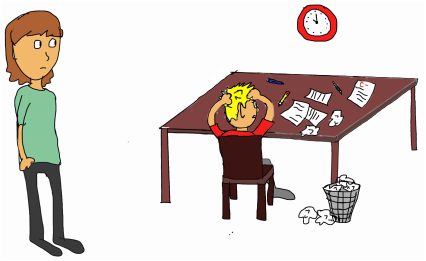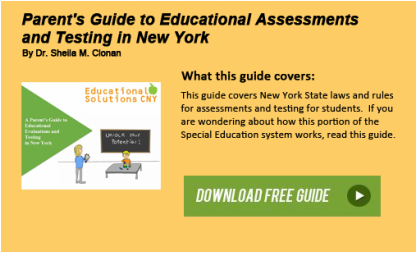Sometimes, a child is doing just well enough for teachers to not recommend him for testing. Other times, the child is tested but the weaknesses are not considered "significant enough" to warrant a label and special education supports. Finally, school staff are sometimes constrained by limited resources (i.e., time, tests, expertise) in the depth and breadth of the testing they provide in the process of making a diagnosis. Parents are the best judge, initially, on whether or not a child needs help. As a parent, you are the first to see struggles with homework, behavior changes, and attitude changes. If you suspect that your child is having difficulty socially, behaviorally or academically, your first resource is your child's school. Before contacting your school, however, make a list of what you have noticed at home. For example, consider the following: 1. My Child Does Not Want To Go To School 2. Homework Takes Hours To Accomplish 3. My child does not seem to understand what is expected on homework and I have to re-teach concepts to help her. 4. Difficulty following directions (spoken or written). 5. My child strongly dislikes reading. 6. My child has difficulty expressing himself or mispronounces words. 7. My child has a short attention span or is easily frustrated. While the above list is fairly broad, generally as a parent, you know when something is "off." The first thing to do when you suspect your child is struggling is to contact your school's Department of Special Education and request that your child be evaluated. Schools are required to take your concerns seriously and in almost all cases, they will be very accommodating. Still, the process of special education evaluations, policies and procedures can be very overwhelming to parents. That is why, after having consulted with many parents and school districts, I have put together a Parent's Guide to Assessments and Testing in NY. To read this comprehensive free guide, just click below. The identification of a learning disability is important to keep a child on track throughout his or her school career by providing the foundation for early and ongoing interventions, cognitive strategies, accommodations and out of school supports. Such supports, however, are generally only available to students with a special education diagnosis. Many children "fall through the cracks" when it comes to being diagnosed in school.
5 Comments
1/20/2022 01:18:38 pm
What an exquisite article! Your post is very helpful right now. Thank you for sharing this informative one.
Reply
6/11/2024 10:06:22 am
"What actionable steps does the blog suggest for parents who suspect their child may have a learning disability, and how does it advise them to navigate the process of seeking support and assessment?"
Reply
Leave a Reply. |
Our place to post news and tips about us and our educational community. Please feel free to follow or comment.
Archives
October 2017
Categories
All
|
|
Our Team
|
Our Work
|
Our Information
e-mail us [email protected]
Call Us 315-320-6404
2070 Glenwood Dr
Cazenovia, NY 13035 |
Educational Solutions CNY is a coalition of educational consultants. Each consultant is practicing under their own license or business.
© 2021 Educational Solutions CNY. All Rights Reserved.



 RSS Feed
RSS Feed